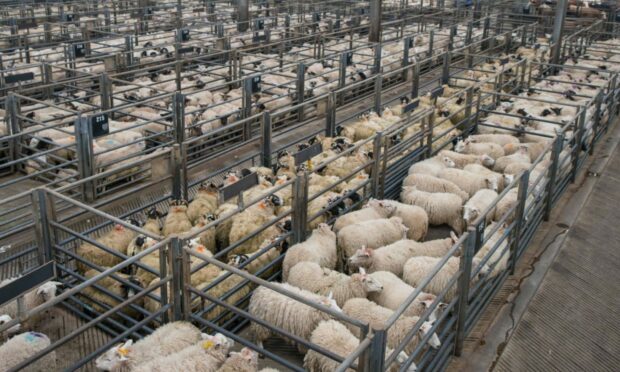Soaring feed costs resulting in poorer finished hoggs and the ongoing concern of frozen New Zealand lamb being shipped into Britain is taking its toll on sheep producers as liveweight prices fall across the country.
The Scottish liveweight SQQ dropped 5.6 pence per kilo last week to level at 220.7p per kg, with this week’s sales in Scotland either producing a comparable average or a slight rise due to smaller numbers forward on the back of poor trade.
One auctioneer from Scotland who wished to remain anonymous said that although the increased shipments of New Zealand lamb was a concern, he said that one of the biggest problems reflecting the trade at the moment was the secondary sheep coming onto the market.
“The price of concentrates for finishing sheep is so expensive now and we’re finding that hoggs are coming onto the market only three quarters finished, rather than being taken the whole way,” he said.
“Now that we are into January, the supply of home-bred hoggs is tightening and it’s bought in store lambs that are being finished so producers are even more cautious with feeding them because they have to consider what they paid for them last year.
“Other farmers work differently and offload hoggs when they see the trade slipping which then results in more out of spec sheep. There is certainly two types of hoggs in the sale ring at the moment but only 20% of them would be at the poorer end.”
The auctioneer did say that increased quantities of New Zealand lamb was adding to the problem but pointed out that the Muslim population was actually more in favour of British meat.
“Unfortunately, the shipments of New Zealand lamb is nothing we haven’t seen before,” he said.
“Muslims prefer to buy in fresh killed lamb, rather than frozen meat from New Zealand so we actually have them to thank for helping to keep us in business.
“British people generally only eat legs of lamb so it’s only that cut that’s being shipped over here as appose to whole carcases.”
He remained optimistic about the sheep trade going forward and hoped that the usual January blues would be outweighed by stronger demand in Easter.
One finisher in the north of Scotland who finishes thousands of store lambs every season said his feed bill was sitting at £1,100 per day.
He said finishing pellets had risen from £270 per tonne to £368/tonne on the year resulting in each lamb costing roughly £20 to finish.
The price he is paying for store lambs at the moment are around £12 to £14 cheaper than what they were.
Most Scottish abattoirs are paying around £5 per kilo deadweight this week and there are reports that some slaughterhouses in England have had to cut their weekly kill.
